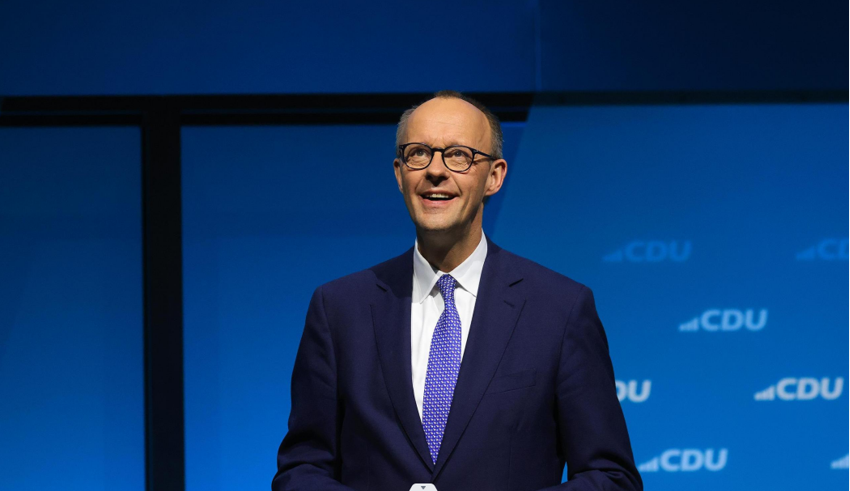Friedrich Merz, the new leader of Germany’s centre-right Union bloc, is on track to become the country’s next chancellor after his victory in the national elections. With his eyes set on Europe’s future, Merz has vowed to prioritize European unity and bolster the continent’s security, particularly in light of the growing influence of the Trump administration and Russia’s ongoing war in Ukraine.
Merz, who led his party to a victory with 28.5% of the vote, faces a challenging task in forming a coalition with the centre-left Social Democrats, led by outgoing Chancellor Olaf Scholz. Despite the far-right Alternative for Germany (AfD) securing second place in the elections, Merz has steadfastly refused to collaborate with the anti-immigrant party, a stance he has repeatedly reinforced.
Acknowledging the urgency of the moment, Merz remarked, “The world out there isn’t waiting for us, and it isn’t waiting for long-drawn-out coalition talks.” He is acutely aware of the international challenges that await him, as Germany navigates tensions from both the U.S. and Russia.
A seasoned political figure, Merz’s journey to the chancellery has been marked by setbacks, including clashes with former Chancellor Angela Merkel. Though he never held a government post before now, Merz spent years as a lawyer and head of BlackRock’s German division, gaining international exposure that some see as an asset to Germany’s foreign policy. Volker Resing, author of Friedrich Merz: His Path To Power, described him as “perhaps the most international chancellor Germany has had since the war.”
After Merkel’s departure, Merz launched a comeback, ultimately securing leadership of the Christian Democratic Union (CDU) in 2021. His leadership style, known for its confrontational approach to politics, has drawn both praise and criticism, with some describing him as a catalyst for meaningful debates.
On the campaign trail, Merz placed significant emphasis on Germany’s ailing economy and its immigration policies. He advocated for stricter border control measures after a recent migrant attack in Aschaffenburg. While his move to push for more deportations sparked criticism, including from Merkel, Merz defended his actions and reiterated that he would never collaborate with the AfD.
Looking ahead, Merz faces the delicate task of navigating Germany’s internal challenges while maintaining its influence in Europe. As tensions rise globally, Merz’s primary focus is clear: ensuring that Europe remains united and resilient in the face of external pressures.
Picture by Krisztian Bocsi for Bloomberg



